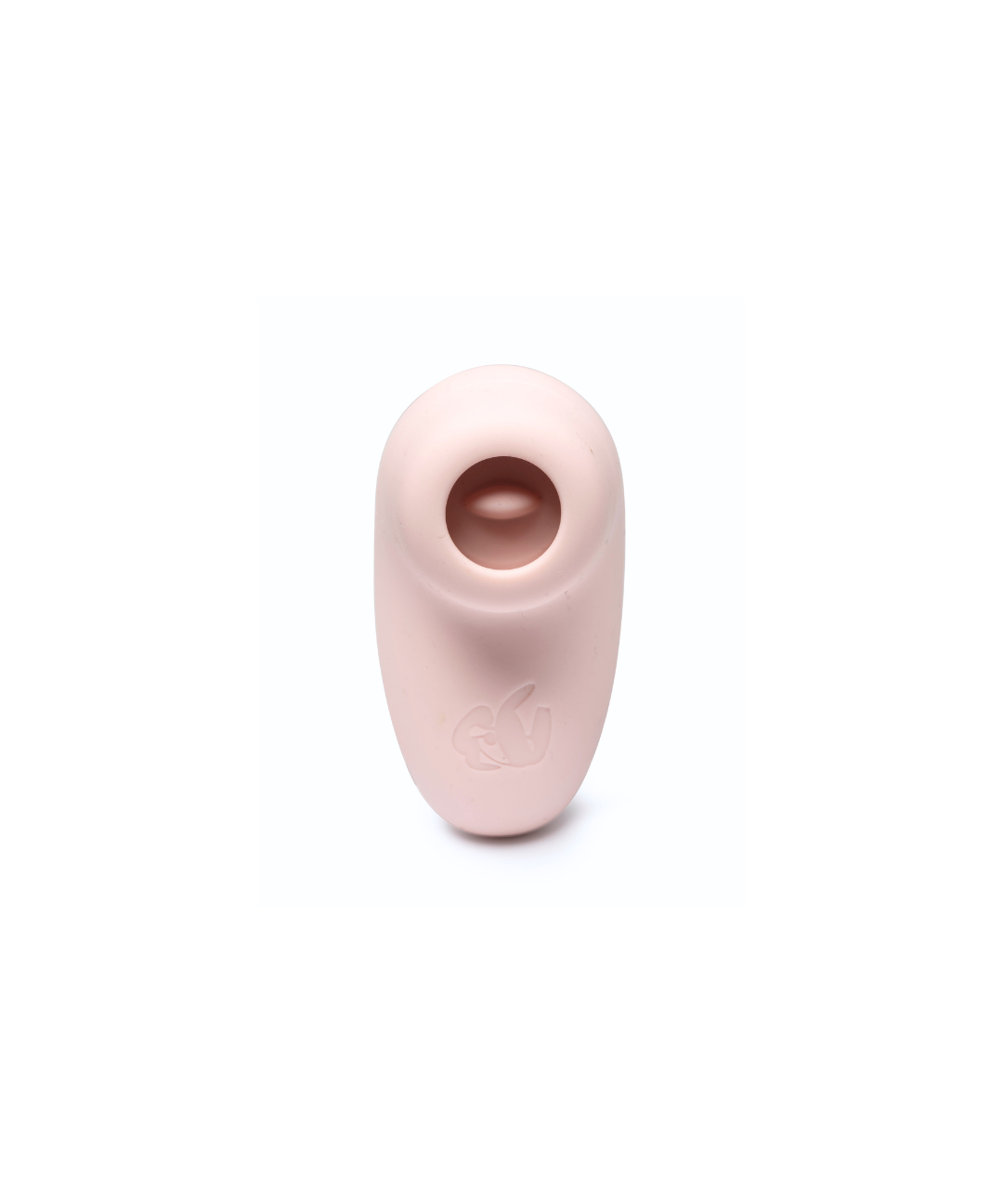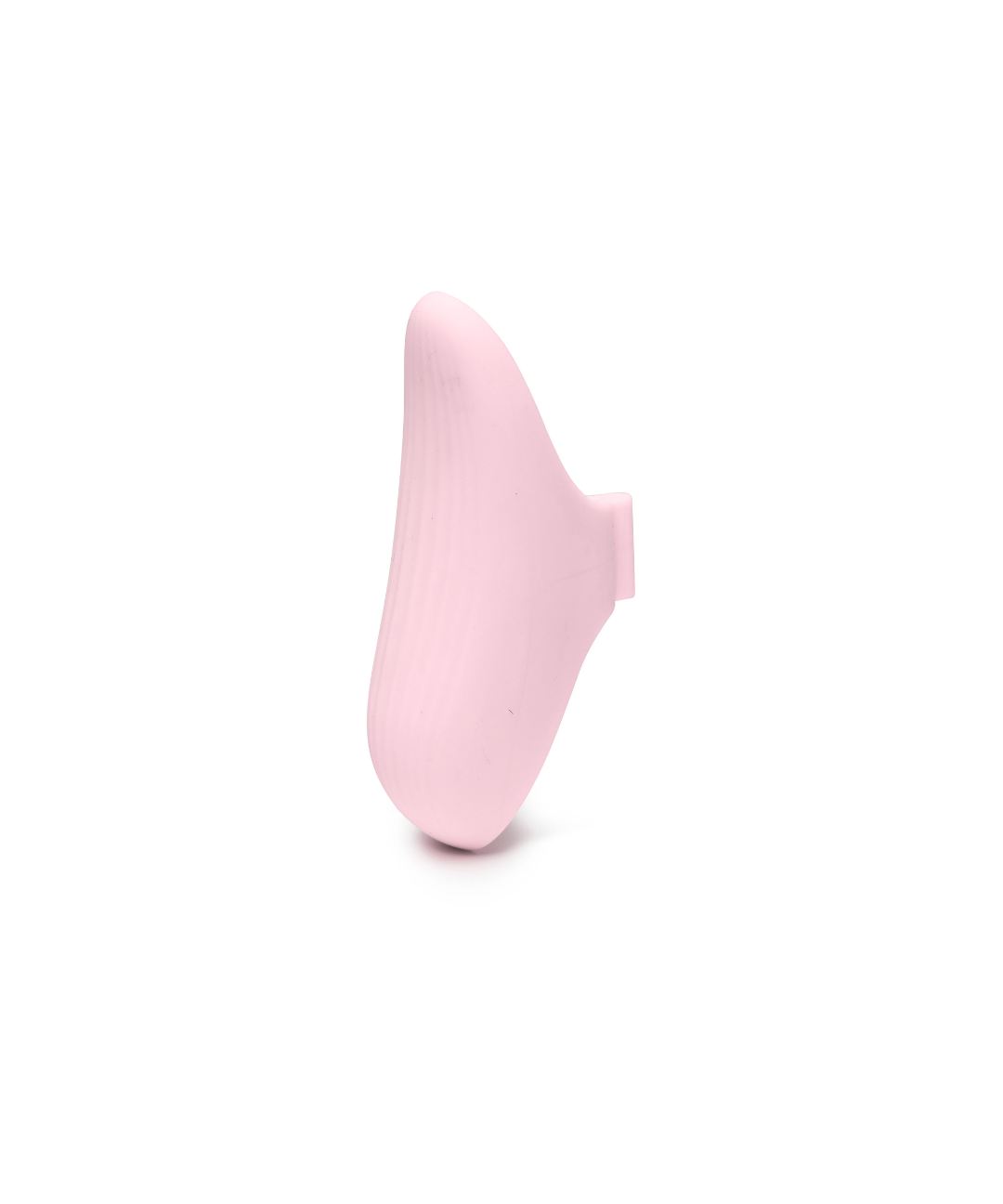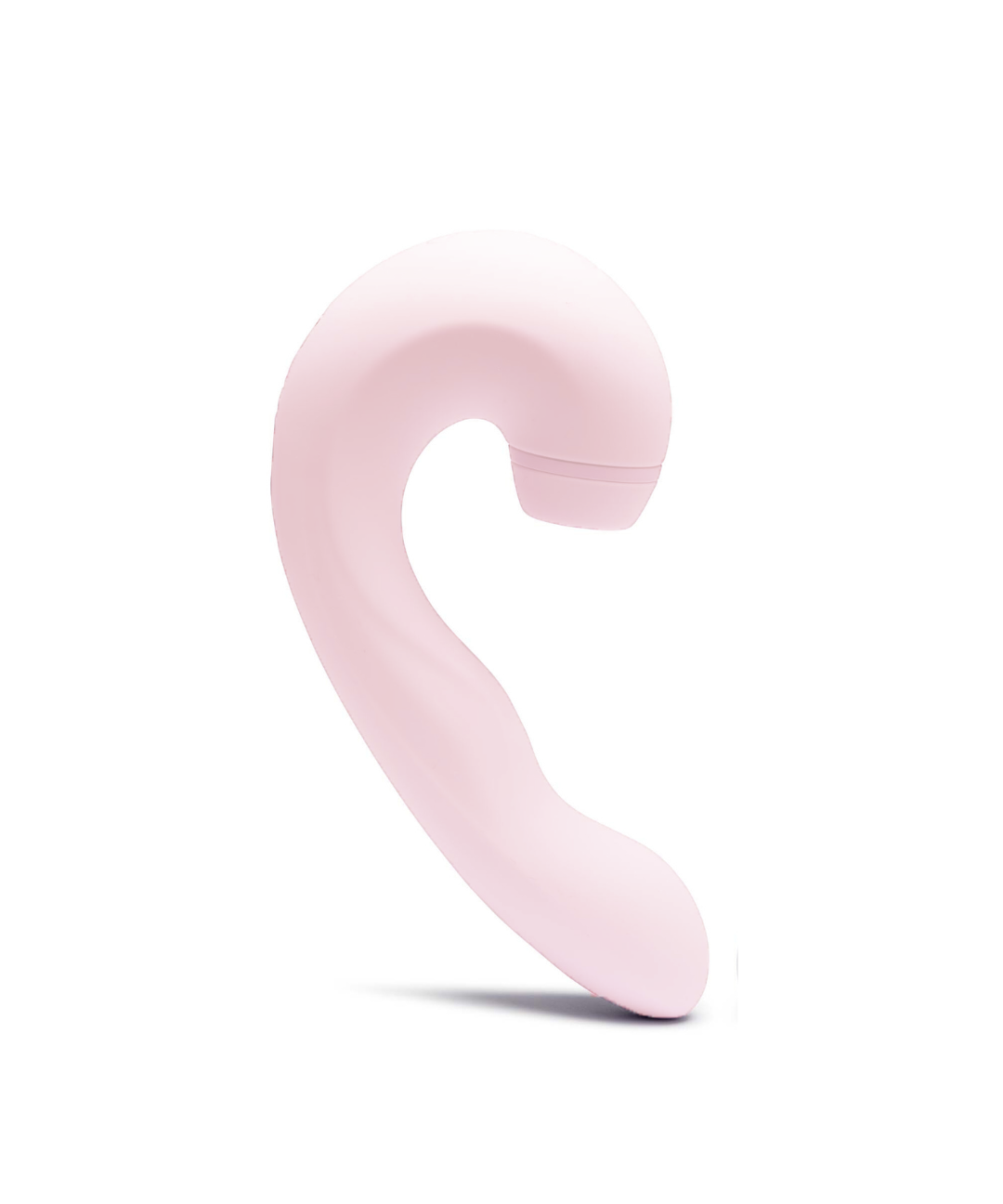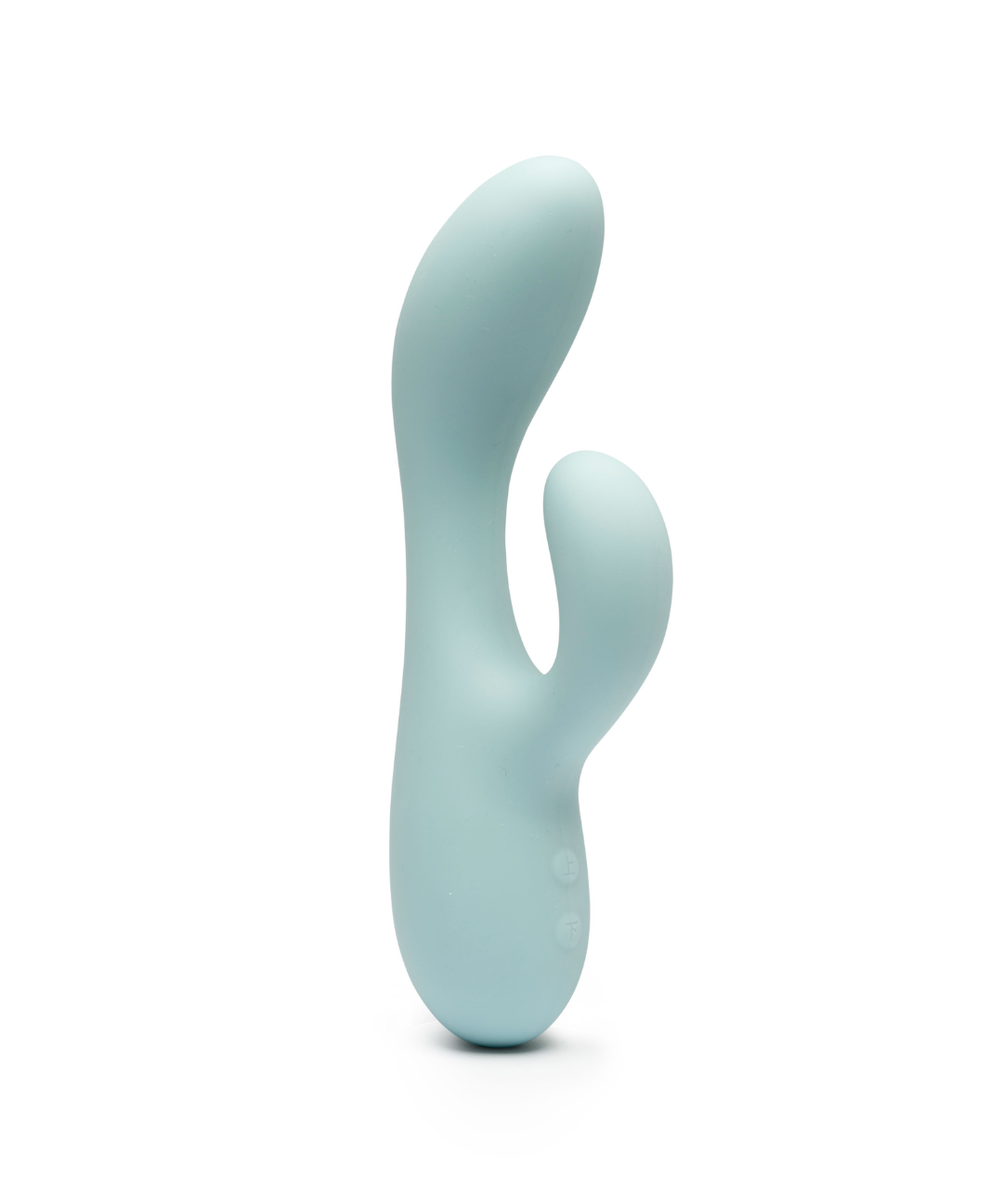Camilla Tved is a norm-critical and feminist sexologist and midwife, host of the podcast Sexterapi, teacher and activist. In the guide below, Camilla, who is an expert in the field, gives you (new) knowledge about sex and intimacy in relation to pregnancy and childbirth.
Did you know e.g. that if you masturbate with a vibrator during your pregnancy, baby can hear the sound. Baby connects the vibrator's hum with oxytocin and well-being, and the vibrator can subsequently help baby fall asleep because the sound is familiar. nuurg <3
Nb. There may be special health conditions that mean that professional staff have given you different information and instructions than those stated here in the guide. If necessary, stick to them, or confer with your midwife/midwife.
1. Pregnancy 1+2 trimester
Discomfort and fatigue can be a pleasure-killer for many at the beginning of pregnancy, and here patience and self-care are the best cure. Calm down.
The narrative that pregnancy equals zero desire is extremely strong and can actually in itself be a desire killer, because you may find it difficult to believe the signals the body sends - "Am I really horny? It can't be right now that I'm pregnant?”
It is a fact that many pregnant women actually experience unchanged sex drive, and it is just as normal that the drive for sex increases during pregnancy. Less lust, same lust, more lust – Go with it and be in it.
Remember: Penetration and orgasms cannot provoke abortion. On the other hand, the contractions of the uterus, which an orgasm (always) gives, can be felt more clearly now. Penetration – with fingers, toys, penis, tongue – you can just keep going and no, baby can't feel anything (other than your well-being). Taste and smell can change from the vagina, you can probably both see and feel the increased blood volume in the body, orgasm can change pattern and intensity, and joints/muscles can feel more yielding
2. Pregnancy 2+3 trimester
The weight at the end of pregnancy can be a changing factor for many in relation to sex. A slightly slower pace may be needed during sex, and the increased blood volume and slightly more "spaced out" brain at the end of pregnancy can increase sensuality and mindfulness, and it can be a huge eye-opener in this way to be "forced" by the circumstances to more slow enjoyment.
The growing uterus means that everything is felt much more clearly, for better or for worse, and changes in position and orgasms can lead to strong contractions. A bit of spotting after penetration is probably the small blood vessels in the cervix giving way and it is not dangerous.
Use pillows to find good positions and relieve the stomach, and respect the body's limits. You can easily use a vibrator, baby can hear it, but recognizes it as a sound that comes with oxytocin and well-being - and after birth it can make baby fall asleep because the sound is familiar <3 Many pregnant women are worried about sound wave powered vibrators . The research is limited and the opinions of professionals can be unclear. My recommendation is that they can be used - but if they worry you, replace it with another one
3. Pregnancy and kink / bdsm
If you have practiced various forms of BDSM and kink before pregnancy, then you can basically continue with most things - use your logic and experience, and talk to your partner/s about what, if any, must be paused or adjusted. If you are pregnant for the first time and at the same time new to BDSM or kink, pay special attention to the fact that you are both moving into unknown sexual territory and are in a hitherto unknown life phase. Here, planning, clear frameworks, communication and after-care are extra important!
The changed hormonal balance and increased blood volume in the body change the experience of pain and physical limits for the vast majority of people. It is particularly relevant for recipients, but actually also for active dominants, which can also be a physically demanding position as a pregnant woman.
Regardless of whether the changed pain experience is negative or positive, it is important to assume that pregnancy requires a different attention to the body, which in a way must be approached "anew". For many, it almost has to be "started all over again" and everything must be tested in terms of, for example, ropes, bindings, positions, pain play, blows, breathing restrictions, etc.
4. Fertility treatment
In insemination treatment there are no sexual restrictions, and neither anal/vaginal penetration and/or orgasms prevent the egg from getting stuck or provoke abortion. In the case of IVF, sex is not recommended for 9 days, but the health system rarely elaborates on what "sex" means and does not think about the fact that many, including heterosexuals, can become insecure due to unclear information.
Fertility treatment can be exhausting mentally and physically with penetrative examinations, hormonal side effects, etc. For some, it puts a damper on the desire and that's perfectly okay - it will probably come back. But sex can also be a counterweight to the treatment, and a way to connect with a body where it "works" - especially if the treatment doesn't work.
Tips:
- The body quickly comes to associate the supine position with treatment and examinations, and can therefore shut down in this position. Find new sex positions and possibly be more direct in controlling penetration so that you maintain control.
- Make "mirror appointments": A treatment triggers a date with intimate contact with yourself and possibly your partner/s (massage, dance, sex, bath, deep talk, vibrator time, etc.).
- Focus on positive body contact that is not about the treatment (movement, distractions, nature, sensuality, indulgence).
- Talk to others (including a possible partner) about the physical discomforts and about the changes the treatment brings. They are real, normal and nothing to be ashamed of.
5. Birth and desire
No, sperm cannot start labor, but oxytocin can work wonders, and intimate contact and presence support a relaxed body, and this is always positive as labor begins and in early labor.
Oxytocin kicks: Skin stroking, massage, nipple stimulation (if they have nerves in them), orgasm, prolonged eye contact, reassurance, tongue kiss, presence. Tongue kissing, in addition to releasing oxytocin, gives a relaxed jaw muscle, and this is always connected to a relaxed pelvic floor, and again this is also always positive during birth. In the last part of the birth, nipple stimulation can also be used to start contractions that have otherwise stalled a bit, and you can consent to this being used by the partner or midwife.
Feelings of desire during childbirth are taboo, but nevertheless it happens to some that the combination of the psychic experience and the pressure in the pelvis/vaginal canal can give varying, often short-lived, flashes of desire and urge to orgasm. If it happens, try to be with it and enjoy it.
In general, try to think of birth as the widest possible bodily and emotional experience, a bit like good sex: Desire, pain, body fluids, muscles, breath, sounds, smells, extreme emotions, hormones, tissues - it's all in play and that everyone wants to be there.
6. Post-birth and sex
The first months after birth are characterized by upheaval. Here, too, the narrative of a lack of sexual desire is dominant, and sex after birth is often expressed by professional staff as both potentially difficult, but also as a "should" and "getting on the horse again"
Again, cishetero norms are governing - women's desire is seen as fragile, and men's desire as a constant that must be accommodated, and this in itself can be demotivating. Physically, you must – as always – let pain and discomfort be the limit, and you should listen to your body and needs before listening to the good advice of professionals, partners or friends.
Some respond to life changes with an increased need for intimacy, others with less. Again: Calm down. Feel free to look at your vulva in a mirror, especially at any stitching, and get your partner to watch. Feel free to check several times – swelling, bleeding and hormones change daily. You cannot use too much lube during this period and remember slowness and curiosity. If you have large stretch marks, or stretch marks that have teased, e.g. with infection, you should resume penetration with a penis or toys at the earliest after an 8-week check-up.
7. Partner to pregnant
A desired pregnancy can easily be overwhelming, and it is completely normal to have mixed feelings about it. As a (sex) partner to a pregnant woman, the art is to make room for both needs and to accept that these do not always match. It may be that your desire increases and that of the pregnant woman decreases. It could also be that you yourself lose the desire, and this is both taboo and can be difficult for the pregnant woman. Try to go into it together. Is it something concrete? Or more of a general anxiety about everything new? What could help? Feel free to talk to people other than your partner as well.
If you both feel like it, don't be nervous about joining. Remember that the baby's brain cannot interpret events; they don't feel sexual desire as desire, but as well-being. A fetus is not a "spectator" of sex, it just takes care of itself and is happy if the pregnant woman is happy. Pregnancy is a brilliant opportunity to rethink sex, intimacy and roles. Take it as a gift and remember that sex is what you think it should be - you will get great pleasure from it later on when life as a family with small children requires you to think about sex broadly and creatively
8. Anal sex during pregnancy, childbirth and maternity;
If you have experience with anal sex, you can safely continue with everything you enjoy during (possibly fertility treatment) pregnancy. Many pregnant women experience a tendency to hemorrhoids, and many also suffer from constipation. Find other sex games/positions, if necessary, and wait for the body to find its way back to itself after the birth. If, as a pregnant woman, you are used to giving anal sex with a strapon, you can continue if your harness does not bother you. The slightly softer joints in the pelvis caused by pregnancy can cause soreness/pain when you thrust, in which case you must stop. After giving birth, you can resume anal sex after about 4 weeks, also if you have had a rupture of the sphincter, but if your rupture has teased with e.g. infection, has been re-stitched or hurts, then you should carry out anal penetration at the earliest after an 8-week check-up with the doctor.
Always start with caution, lots of lube, play and massage first, and don't push yourself. Approach it as if it were the first time and give it time and patience if it doesn't work. There is no evidence that anal sex in itself causes increased incontinence (air, faeces) in people who have given birth, but the desire and ability to properly feel the body is (as always) paramount
9. Breastfeeding/bottle and sex
If you breastfeed/breastfeed, the milk hormone prolactin can affect sex drive. Hormones are also to blame for the slightly dry mucous membranes you may experience - so if you don't already have experience with lube, look forward to it.
Another desire-suppressor with both breastfeeding and bottle feeding is that it leads to limited sleep, and in the long term feelings of "skin satiety" from meeting the infant's needs can also arise. When breastfeeding/chest feeding, the milk can flow when excited, and sex can become a slightly milky affair. Try to accept it as a premise and keep dry cloths nearby.
The fact that the breast now has a food function may require a little cognitive adjustment. You can, for example, agree that breast tissue and/or nipples are no-go for a period of time. Others are happy that the "old" function is still there and reminds them of the part of life that is not about babies. Feelings of desire when the child grabs the nipple can feel very taboo, but are completely normal. Bodies are programmed for certain responses to certain actions, and briefly the brain can misinterpret the experience. Most people will probably recognize that it is often only at the beginning of breastfeeding. Try to enjoy that your desire is still there somewhere







